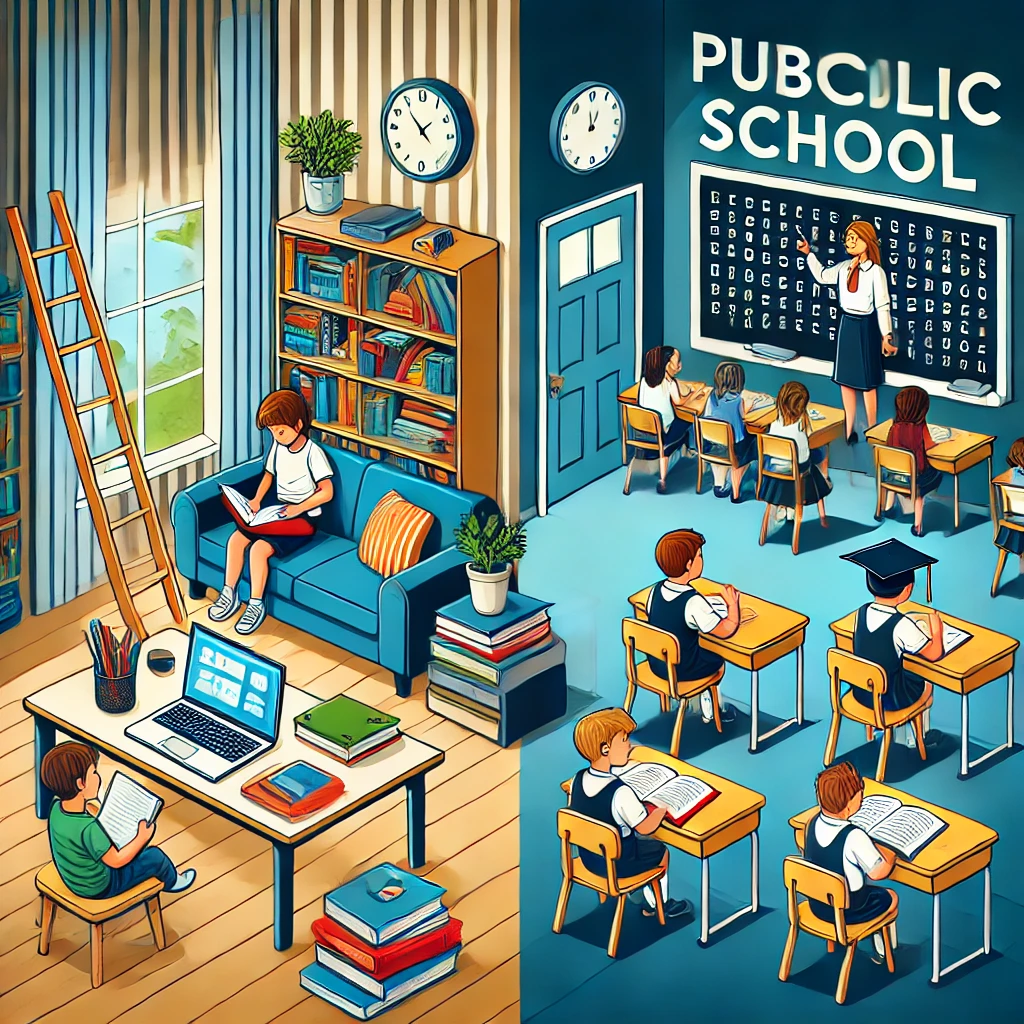Homeschooling vs. Public Schooling: A Thorough Comparison
- Posted by George Taylor (United Kingdom)
- Categories Homeschooling
- Date July 10, 2024
Homeschooling vs. Public Schooling: Understanding the Basics
Homeschooling involves education where parents take primary responsibility for their children’s education at home. Contrarily, public schooling involves students attending a school established by the state where education is administered by professional teachers. Each system has its inherent benefits and potential drawbacks.
Flexibility and Customization
One of the compelling advantages of homeschooling is the flexibility it offers. Parents can tailor the curriculum to fit their child’s unique learning style, interests, and pace. This customization can often lead to a deeper understanding of material and a more profound educational experience. On the other hand, public schooling provides a more structured environment with a standardized curriculum that may benefit students who thrive under consistent routines.
Socialization and Extracurricular Opportunities
A common concern about homeschooling is the socialization aspect. Public schools offer a broad social environment where children interact with peers from diverse backgrounds. These interactions can enhance communication skills and emotional intelligence. Conversely, homeschoolers may have fewer daily interactions but often engage in coordinated group activities such as field trips, sports teams, and homeschool cooperatives, providing quality over quantity social experiences.
Academic Outcomes and Performance
Studies comparing the academic outcomes of homeschooled vs. public schooled students show mixed results. Many homeschool students often outperform their public school counterparts on standardized tests, attributing this success to customized teaching methods. However, public schools offer more varied resources and access to qualified educators in specialized subjects, which can be advantageous for students.
Cost Implications
Considering cost, homeschooling can be less expensive than public schooling, depending on the resources purchased and whether a parent stays home to teach. Public schools, funded by taxes, offer education at no direct cost to parents but may involve additional fees for activities, meals, and supplies.
Pros and Cons of Each System
- Benefits of Homeschooling:
- Tailored learning environments
- Flexible schedules
- Potential for accelerated learning
- Drawbacks of Homeschooling:
- Requires significant parental involvement and time
- Potential gaps in socialization
- Limited access to specialized educators
- Benefits of Public Schooling:
- Broad social interactions
- Access to diverse educational resources
- Extracurricular activities
- Drawbacks of Public Schooling:
- Less personalized attention
- Rigid curriculum
- Varying quality of education depending on the school district
Making the Right Choice
Choosing between homeschooling and public schooling depends on the child’s needs, family circumstances, and available resources. Parents must consider their ability to manage the homeschooling environment effectively and whether their local public schools meet their expectations in terms of quality and environment.
For more information on homeschooling resources, visit Regent Studies, where you can find a variety of digital resources to support both homeschooling and public schooling needs.
In conclusion, whether you choose homeschooling or public schooling, the goal remains the same: to provide the best possible education to prepare your child for the future. Each system offers distinct advantages, and understanding these can help you make the best choice for your family’s unique situation.
You may also like

How to Build OpenUSD Applications for Industrial Digital Twins

Building a 3D Product Configurator with USD and Omniverse


